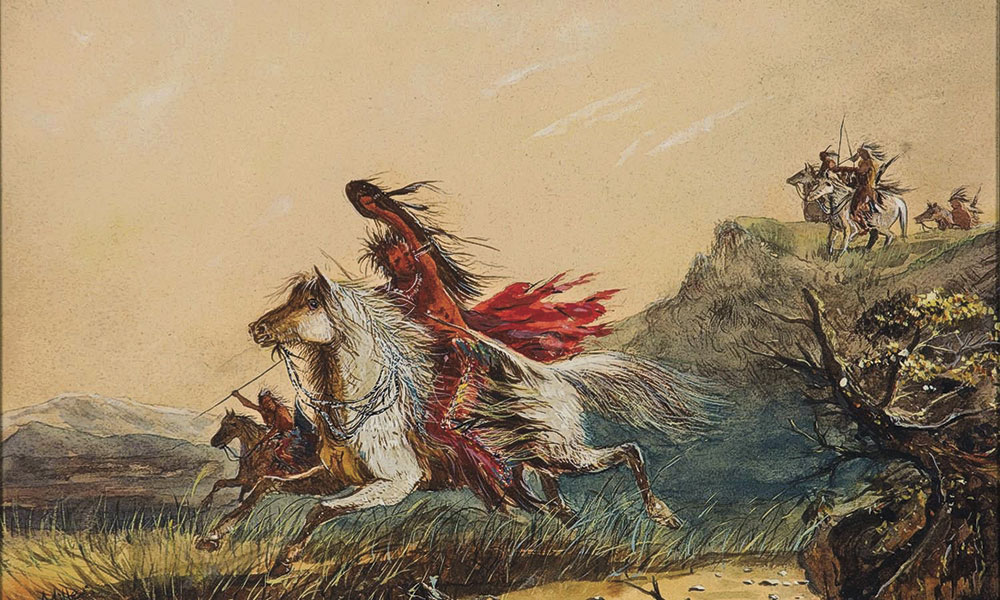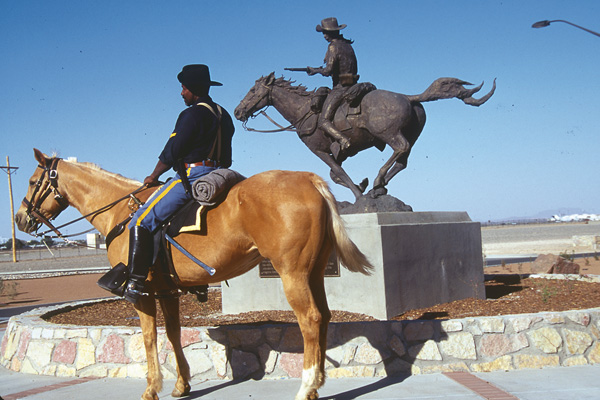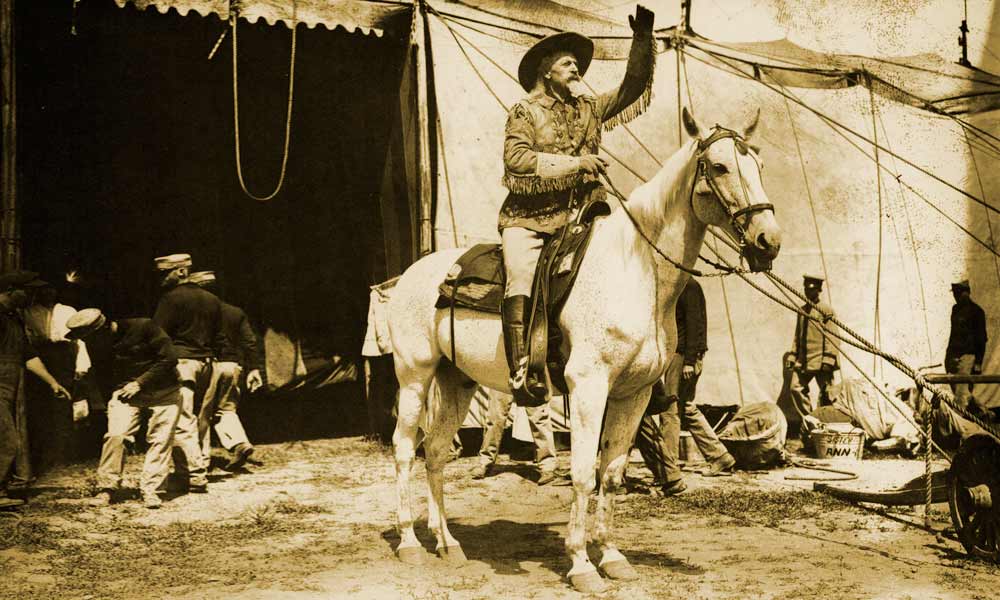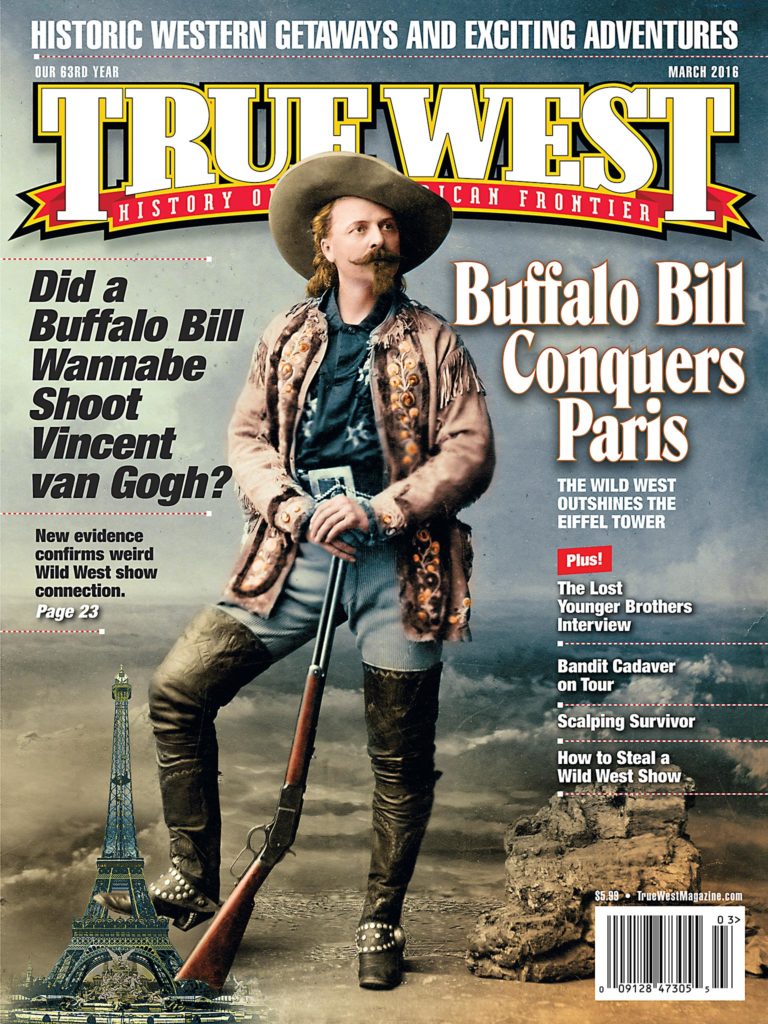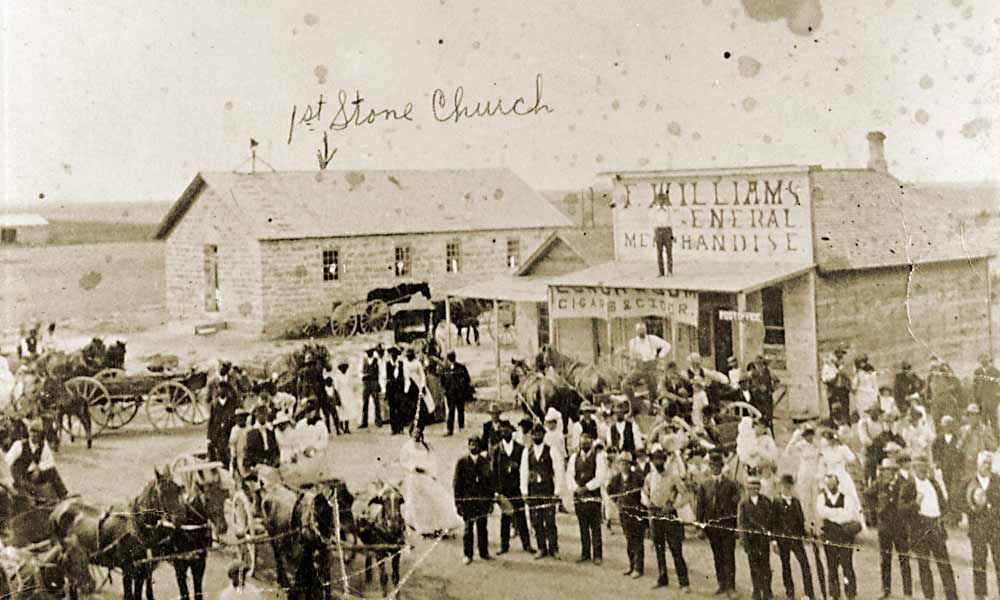
– Courtesy Library of Congress –
One 1895 headline reads like the opening to a bad joke: “A Grocer, a Woman [and] an Officer of the Law….”
In March 1895, in Kansas City, Missouri, Constable Ashton went to Henrietta Woods’s home to claim a patron’s trunk she was holding until room rent was paid.
Woods greeted Ashton warmly, possibly to disarm the lawman, but before he could remove the trunk she was holding hostage, she had called over grocer J. Goodrich.
“Between the grocer and Mrs. Woods the monotony of Constable Ashton’s weary existence was startlingly livened up,” The Kansas City Times reported on March 13.
“While the grocer tried to upper-cut the constable, Mrs. Woods pulled at his hair and scratched furrows into his face. In the meantime the constable [waved] his arms and beat a tattoo on the grocer’s face, occasionally landing one on Mrs. Woods.”
At some point, the paper reported, “The triangular mill was decided a draw and Ashton took the trunk.”
Ashton charged warrants against the pair for assault. The court found Woods and the grocer guilty; each was fined $1, plus court costs, which amounted to $17—equal to nearly $500 today.
Most pioneers, though, were not beating a tattoo into their grocer’s face. They were happy to have this slice of civilization. Frontier mercantilers sold groceries along with other products, such as candles, fabrics and nails. The only food “specialty stores” were the butcher shop, for meat and lard, or the bakery, for prepared foods, like breads and cakes.
Grocers sold dry goods, meaning nothing that could spoil, like flour, sugar, rice and oats. When available, butter, eggs or other farm goods were sold.
They sold fresh vegetables and fruit when in season. Grocers called fresh fruit “green” to distinguish it from dried fruit. Most folks detested the dried version in pies and cobblers. But for settlers living in a snowy mountain town, one either ate a dried fruit pie or no pie at all.
Pioneers living on farms or in remote places made monthly trips into town to purchase flour, sugar, tea, coffee, yeast and other staples in barrels or sacks. Or shoppers got their goods in funnel-shaped papers when grocers didn’t have sacks, recalled J.P. Scofield, who lived in Kansas and Nebraska during the 1890s.
Housewives did their own canning, but bachelors across the West and cooks who lived in bigger towns bought canned goods, especially those preserving specialty items, like oysters, and seasonal items, like tomatoes.
The cost of goods varied by location and the economy across the West. To get an idea of prices: residents in Junction City, Kansas, in 1879, could spend $1 each for 16 lbs. of dried apples, 14 lbs. of brown sugar, 1 lb. of Oolong tea and 5 lbs. of Arbuckles’ Coffee. The daily average wage for most workers was $3-$5
Since, unlike the pioneers, we have access to fresh fruit year round, try an 1898 dish pioneers made in Dallas, Texas—yummy “green” baked peaches.
*** R E C I P E ***
~ Baked Peaches ~
6 peaches
½ cup sugar
12 teaspoons butter
Peel the peaches, cut them in half and remove the pits. Place peaches into a buttered, ovenproof dish so they all touch. Completely cover with sugar, and place a teaspoon of butter on each peach half. Bake at 325°F for about 30 minutes or until tender. Serve warm or cold.
Recipe adapted from August 14, 1898, The Dallas Morning News in Texas
Sherry Monahan has penned Mrs. Earp: Wives & Lovers of the Earp Brothers; California Vines, Wines & Pioneers; Taste of Tombstone; The Wicked West and Tombstone’s Treasure. She’s appeared on the History Channel in Lost Worlds and other shows.


